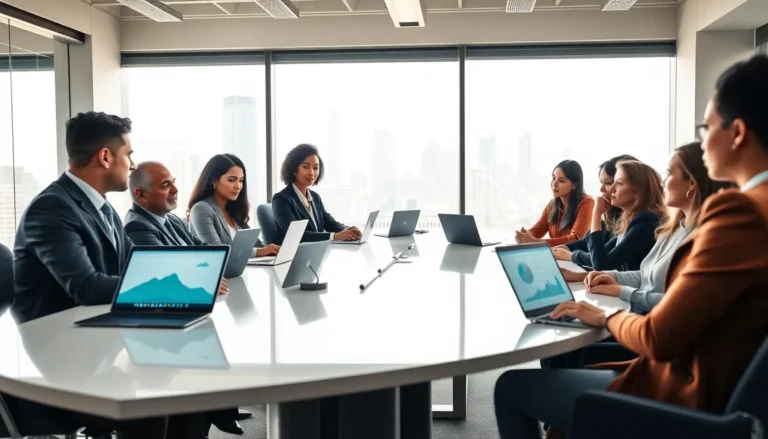Coffee isn’t just a drink: it’s a whole mood, lifestyle, and even a culture. Imagine this: You walk into a lively café, the rich aroma of freshly brewed coffee engulfs you, and people are animatedly discussing their day, art, or the latest Netflix show, what’s not to love? From bean to cup, the journey of coffee has spun a web of traditions, practices, and communities that are as complex as your favorite brew. But what exactly is coffee culture? Let’s immerse and explore its origins, modern trends, and what the future holds for this beloved beverage.
Table of Contents
ToggleThe Origins of Coffee Culture

Historical Context
Coffee’s journey began centuries ago in the ancient coffee forests of Ethiopia. Legend has it that Kaldi, a goat herder, discovered coffee beans after noticing how energetic his goats became after munching on them. Fast forward to the 15th century, and coffee had made its way to Persia, Egypt, and the Ottoman Empire, where it was met with open arms.
Coffee houses, known as qahveh khaneh, began popping up, becoming hubs for social interaction. Here, people engaged in lively discussions about politics, philosophy, and the latest gossip. By the 17th century, Europe caught the coffee fever, paving the way for coffee culture across continents.
Cultural Significance Across Regions
As coffee spread, it adopted unique cultural identities. In Italy, espresso bars are social hubs, while Turkish coffee emphasizes hospitality and tradition. In Ethiopia, coffee ceremonies are integral to social gatherings, showcasing its importance in cultural identity. Each region reflects its own values and history through coffee, enriching the global coffee culture in ways unique to their heritages.
Modern Coffee Culture Trends
The Rise of Specialty Coffee Shops
Today, specialty coffee shops are everywhere, offering meticulously sourced beans and brewing techniques. These shops focus on quality over quantity, emphasizing artisanal methods and unique flavors. Baristas transform into coffee artists, crafting drinks that look as good as they taste. The experience extends beyond just drinking coffee: it’s about appreciating the nuances in every cup.
These cafés invite patrons to savor the moment, whether they’re working, chatting, or simply enjoying their brew. The idea that coffee can be both a craft and a community experience has given rise to a more conscious consumer base.
Impact of Social Media on Coffee Culture
Simultaneously, social media has revolutionized coffee culture. Instagram feeds explode with beautifully curated coffee shots, creating a visual feast that inspires coffee enthusiasts. Hashtags like #CoffeeArt and #ButFirstCoffee trend regularly, connecting people across the globe through their shared love for the beverage.
Baristas are now influencers in their own right, showcasing their skills and building communities online. Platforms like TikTok have introduced fun challenges and knowledge-sharing, turning casual coffee drinkers into aficionados eager to learn more.
Global Coffee Festivals and Events
Celebrating Coffee Around the World
Around the globe, coffee festivals have become essential events, celebrating the beverage in all its forms. From the SCAA Expo in the U.S. to the Melbourne International Coffee Expo, these events attract coffee lovers, roasters, and baristas alike.
Attendees can learn from industry leaders, attend workshops, and taste some of the finest brews available. The sense of community is palpable, as coffee enthusiasts unite to share their passion for this beloved drink.
Innovations in Brewing Techniques
Also, festivals showcase the latest innovations in brewing techniques. New methods, such as cold brew and nitro coffee, excite taste buds and challenge traditional brewing views. Experimentation encourages creativity, making coffee not just a drink but an experience that evolves continuously.
Coffee Culture and Community Building
Local Coffee Gatherings and Third Places
Cafés today serve as ‘third places’, social environments distinct from home and work. These locales foster interactions, where people come to unwind or engage with others. Whether it’s a science exhibition or a local music night, cafés often host events that bring the community together.
Creating a Sense of Belonging
As individuals flock to their favorite coffee spots, they often develop a sense of belonging. Regular interactions with baristas and fellow patrons create friendships. Coffee culture emphasizes connection, making it an integral part of community-building.
The Future of Coffee Culture
Sustainability and Ethical Sourcing
Looking ahead, sustainability plays a pivotal role in the future of coffee culture. Consumers are increasingly concerned about where their coffee comes from and how it’s produced. Many are opting for ethically sourced beans to support farmers and minimize environmental impact.
Roasters and shops are prioritizing transparency, allowing consumers to trace their coffee from farm to cup. This shift not only enhances the coffee experience but also ensures a more equitable industry.
Evolving Consumer Preferences
Consumer preferences are evolving, too. People are becoming more adventurous, exploring unique flavors and blends, often inspired by global influences. The traditional cup of joe has expanded to encompass an array of choices, from exotic single-origin brews to innovative blends. This evolution reflects coffee culture’s adaptability and resilience.





